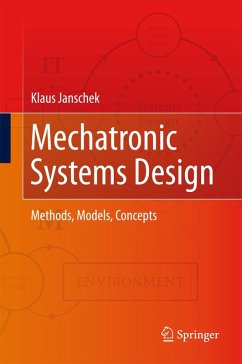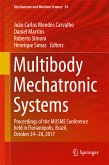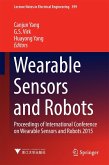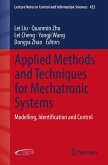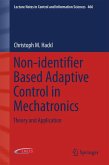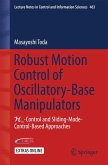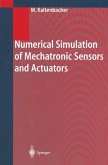In this textbook, fundamental methods for model-based design of mechatronic systems are presented in a systematic, comprehensive form. The method framework presented here comprises domain-neutral methods for modeling and performance analysis: multi-domain modeling (energy/port/signal-based), simulation (ODE/DAE/hybrid systems), robust control methods, stochastic dynamic analysis, and quantitative evaluation of designs using system budgets. The model framework is composed of analytical dynamic models for important physical and technical domains of realization of mechatronic functions, such as multibody dynamics, digital information processing and electromechanical transducers. Building on the modeling concept of a technology-independent generic mechatronic transducer, concrete formulations for electrostatic, piezoelectric, electromagnetic, and electrodynamic transducers are presented. More than 50 fully worked out design examples clearly illustrate these methods and concepts and enableindependent study of the material.
Dieser Download kann aus rechtlichen Gründen nur mit Rechnungsadresse in A, B, BG, CY, CZ, D, DK, EW, E, FIN, F, GR, HR, H, IRL, I, LT, L, LR, M, NL, PL, P, R, S, SLO, SK ausgeliefert werden.
From the reviews:
"This excellent textbook presents fundamental knowledge concerning the treatment of mechatronic systems, spanning the three dimensions of design, methods and applications. ... This textbook ... is an important publication in the field of mechatronic system research and applications. It simplifies the access to a growing literature in this field, and offers a needed systematic and comprehensive approach to a model-based design of mechatronic systems ... ." (Franz Selig, Zentralblatt MATH, Vol. 1237, 2012)
"This excellent textbook presents fundamental knowledge concerning the treatment of mechatronic systems, spanning the three dimensions of design, methods and applications. ... This textbook ... is an important publication in the field of mechatronic system research and applications. It simplifies the access to a growing literature in this field, and offers a needed systematic and comprehensive approach to a model-based design of mechatronic systems ... ." (Franz Selig, Zentralblatt MATH, Vol. 1237, 2012)

